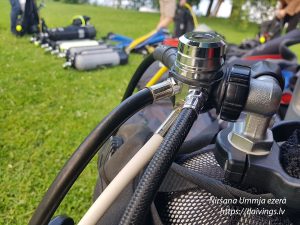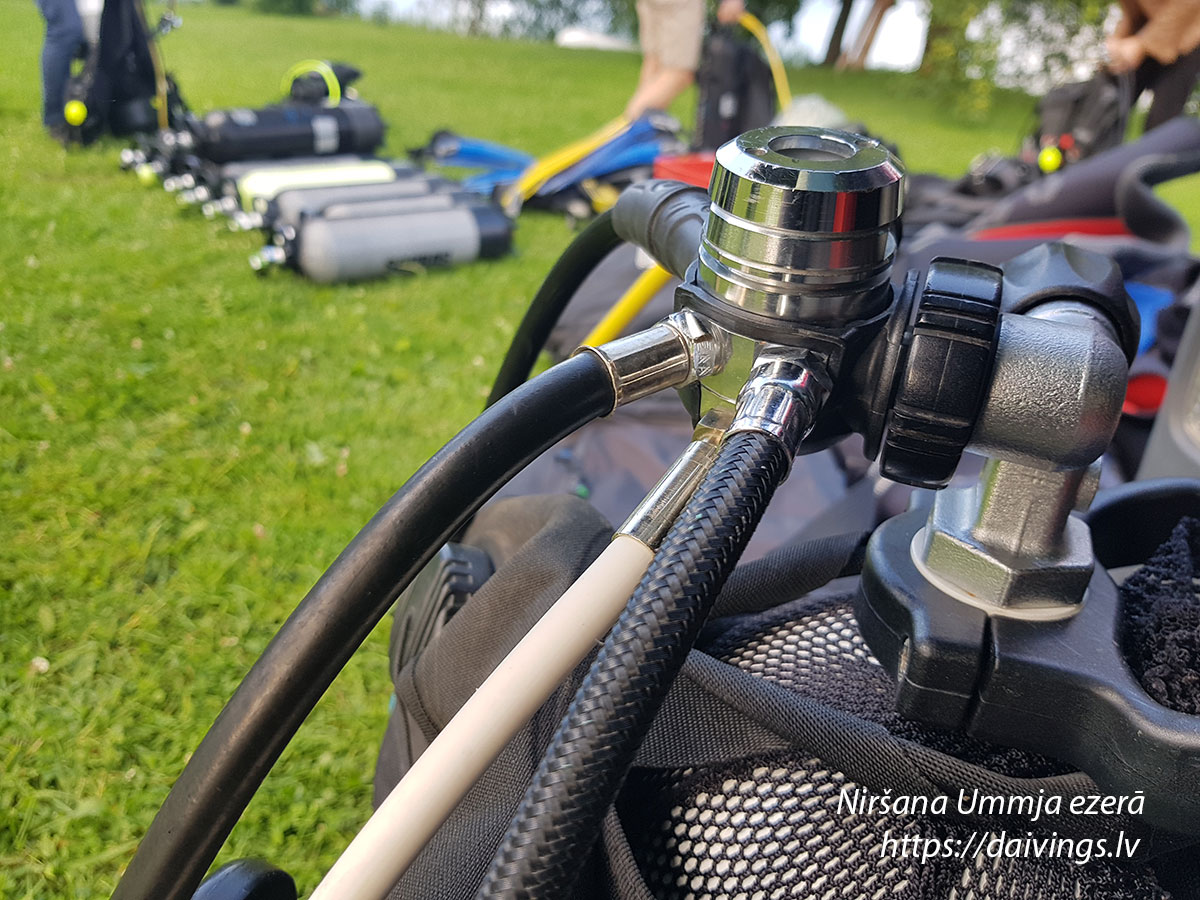We have performed scuba diving in Lake Ummja, measured its sludge thickness and clarity, as well as surveyed the former diving training site to assess the suitability of the lake for scuba diving. At the time of the survey, looking at the former diving base of Lake Ummja, at the end of summer, the visibility in the lake is only 1- 1.5 meters. The lake has been described as one of the few clear water lakes in Latvia, but it has changed in recent decades.
Table of Contents
Dortmanis lobelia on the shores of Lake Ummja
Lake Ummja grows only a plant found in a few lakes - Dortmanis lobelia, which is the only species of the lobelia family found in Latvia, which is very rare and therefore especially protected. During the last 100 years, due to eutrophication of lakes - overgrowth and water pollution, this plant - Dortmanis lobelia has disappeared in more than 20 Latvian lakes.
Eutrophication of Lake Ummja
There is an opinion that Dortman's lobelia the biggest threat is the pollution of the lake water with pollution of organic origin, which mostly enters water bodies mainly due to the large number of bathers, which can also be explained by natural eutrophication. In Lake Ummja, the color of the water has changed from blue-green to green, but the water hearing has decreased from 6 meters in 1906 to 3 meters in 2017.
Examining the general trend of the overgrowth of Lake Ummja, it can be concluded that a natural process takes place there, because the lake has a thick composition of organic materials, throughout the long period from its origin to the present day, the lakes have been constantly evolving and changing. Neither of the lakes has retained its original form or content, because as soon as the depression is filled with water, the interaction between the two begins. On the one hand - water erodes and dissolves the bedrock and sedimentary rocks forming the depression, on the other hand - dissolved substances change the chemical composition of water.

It is estimated that 1 mg of bacteria (Bacillus subtilis, Pseudomonas aeruginosa, Mycobacterium tuberculosis and Acidithiobacillus ferrooxidans) consumes up to 4 l of oxygen per hour. But a person who weighs 70 kg consumes only 22 liters of oxygen per hour during heavy physical work, which is many millions (100) times less than the weight of bacteria of the same weight. If there is a lot of algae, then all the sinking mass is usually not enough for mineralization, and part of the residue accumulates at the bottom of the lake in the form of undecomposed organic matter.
Oxygen-free zones are formed in lakes
At the same time, an oxygen-free area is formed in the deeper layers of the lake. In winter, on the other hand, oxygen disappears completely from the water for the same reason. Lakes are covered with ice, oxygen cannot enter from the air, photosynthesis does not take place, but overwintering plants, like animals, need oxygen to breathe. Oxygen is low in water, as it is mostly used in the decomposition of organic matter. Therefore, towards the spring, in lakes rich in plants and animals, fish are suffocated. The lakes will be enriched with oxygen at full depth only in spring and autumn, during the vertical circulation of water.
The lakes change color as a result of a natural process
In such lakes, the color of the water becomes darker and the clarity decreases very sharply. At best, water is
transparent at a depth of 5 - 6 m, usually at a depth of 1 - 3 m. Most of the water reaction is alkaline (pH> 7)
and during the flowering of lakes - even strongly alkaline (pH 9). In the process of lake development, the oligotrophic type has changed
eutrophic (E). Plant feeding conditions in eutrophic lakes are excellent because of the accumulation of nutrients. Therefore, the substance and
there is an interruption in the circulation of energy.
Prohibition to swim in Lake Ummja in summer
In order not to disturb the flowering of this fragile and unusual plant, the Cabinet of Ministers Regulations No. 204 “Individual protection and use regulations of the nature park“ Piejūra ””, which prohibits swimming and boating in Lake Ummja from 1 June to 15 August.
Related diving training courses led by a PADI MSDT diving trainer:
We prepare, train and certify divers. We offer 30 different specializations in diving training and the issuance of international PADI scuba diving certificates. Internships for diving professionals Divemaster (GO-PRO - from beginner to PADI Divemaster). We organize diving trips, follow us >>>!
Open Water Diver we teach the course in Riga and throughout Latvia (pre-registration required, phone /WhatsApp 220-77-202)

